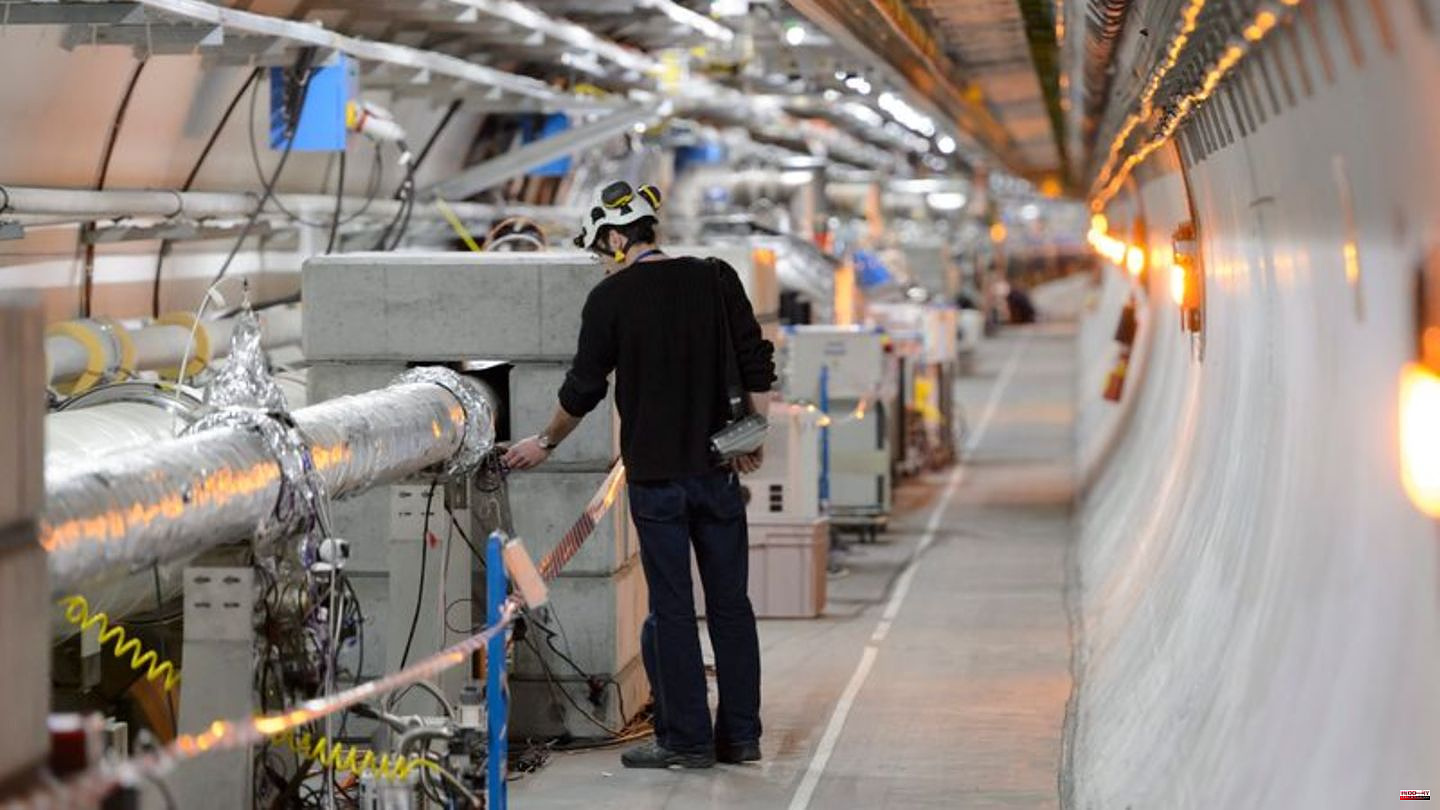In order to save electricity, the world's largest particle accelerator is taking its usual winter break early. Because of the energy crisis, the plant of the European Organization for Nuclear Research (CERN) in the Franco-Swiss border area near Geneva will be shut down on November 28, two weeks earlier than planned.
The operating time is also to be reduced in 2023, by 20 percent in both years together. As a result, less data is generated for research, as research director Joachim Mnich explained to the German Press Agency. There is also pressure to save energy at energy-intensive German research institutes.
At CERN, the French electricity supplier EDF asked for the shorter operating time. It should relieve the system significantly: In a full year of operation, the LHC accelerator consumes as much electricity as the households of a city of 300,000 inhabitants.
Restriction is "tolerable"
In the LHC, about two billion collisions between protons are generated every second during the runtime. Physicists gain insights into the building blocks of matter from the decay processes. A shorter runtime means fewer collisions. The loss cannot be made up for because the LHC and the devices that record the data are at their current performance limit, said Mnich. But: "Measured against the entire current LHC operating period of four years, 20 percent fewer collisions this year and next are bearable."
But the physicists are thinking ahead. "If electricity prices remain high in the long term, this could mean that we have to reduce the physics program or stretch it out," says Mnich. It will be checked where else electricity can be saved. Among other things, a new housing estate will soon be heated with the waste heat from the energy that is consumed. In addition, from the end of 2023, CERN buildings are to be supplied with the waste heat from a new data center.
Savings are also being made in Germany - but differently
German research institutions also have energy-saving plans. However, this is less about a reduction in ongoing experiments and systems than about savings in the building complexes. Cooling and ventilation performance is reduced, building temperatures are lowered, lights are switched off, the hot water supply is reduced or more photovoltaic systems are set up.
The Helmholtz-Zentrum Berlin (HZB), for example, wants to continue operating the energy-intensive X-ray source Bessy II without interruption in the winter. The research there is a "foundation for the safe, sustainable energy supply of the future and must therefore continue," said a HZB spokeswoman for the dpa. The aim is to develop energy supply concepts that do not use fossil fuels that are harmful to the climate. Research is being done on more efficient solar cells and materials for batteries as well as new catalysts for the production and processing of green hydrogen. The electron storage ring in Adlershof, including the associated facilities, requires as much electricity per year as 7,500 four-person households.
At one of the largest data centers in Europe in Garching near Munich, the Leibniz data center, it was checked whether energy could be saved by reducing the clock frequency of the processors. "In reality, however, this means that the individual applications calculate longer on the supercomputer and in the end even consume more power," explained the head, Dieter Kranzlmüller, to the dpa.
Saving through maintenance
At the GSI Helmholtz Center for Heavy Ion Research in Darmstadt, the accelerator is already in a planned maintenance phase. At the Max Planck Institute for Plasma Physics (IPP) in Garching, too, the energy requirements for the large-scale experiment "ASDEX Upgrade" will largely be eliminated for the time being because it will be rebuilt in the next two years. The second IPP experiment in Greifswald in Mecklenburg-Western Pomerania, "Wendelstein 7-X", can neither be switched to an economy mode nor can the experiment time be shortened in a meaningful way, said a spokesman. However, it has been agreed with the network operator that, in the event of supply bottlenecks, the working and experimentation times will be shifted to lower-consumption times of the day.
The Alfred Wegener Institute (AWI) in Bremerhaven does not assume that planned expeditions will have to be canceled next year. The AWI operates the research ship "Polarstern", which is in use on average more than 300 days a year, as well as other ships and polar aircraft. In this and the next two years, the significantly higher expenditure on fuel will still be covered by government grants or reallocations in the budget. "Should the current high price situation for marine diesel continue for several years or even worsen, the AWI's expedition operations would be endangered," the AWI announced.









